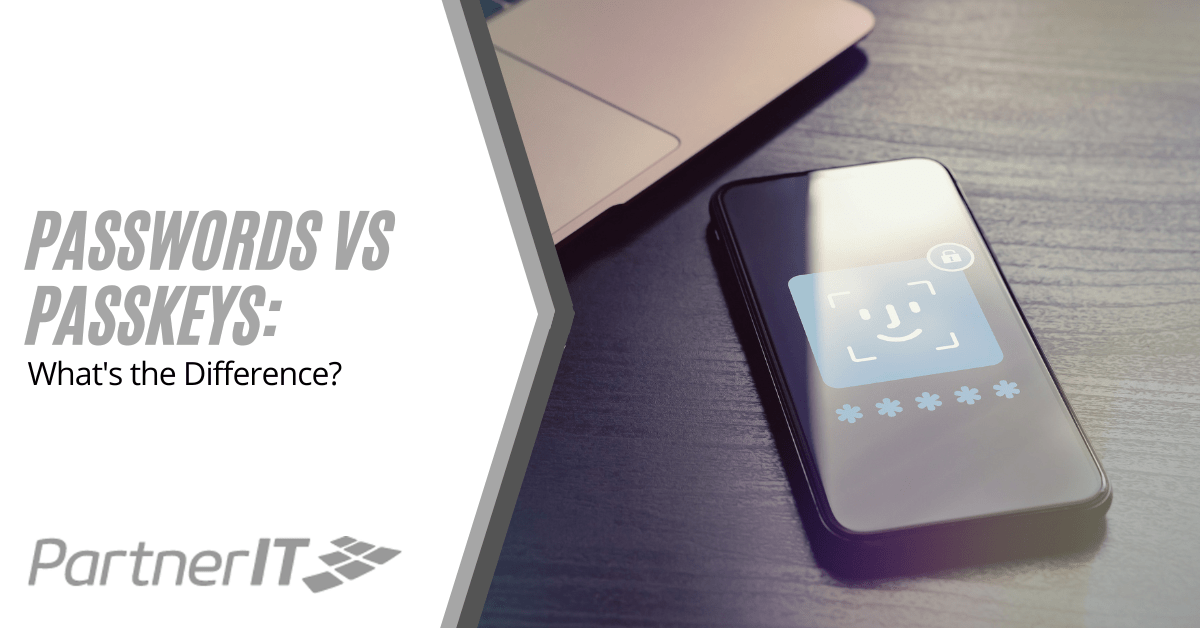With an increasing number of cyber threats throughout the world, it’s essential to take steps to protect your sensitive data. One way to do that is by using strong passwords.
In regard to securing your accounts, you may have heard the term “passkey” and wondered how it differs from a password. In this article, we will explain the difference between passwords and passkeys and how they work.
What are Passwords?
A password is a secret combination of characters that is used to authenticate a user’s identity. It’s typically made up of a mix of letters, numbers, and symbols and should be unique and complex enough to prevent unauthorized access.
Passwords are used to protect various types of digital assets, such as:
- email accounts
- social media profiles
- online banking accounts
Passwords are created by users and stored on servers or devices that require authentication. When a user enters their password, the system compares it to the stored password to determine if the user is authorized to access the system.
The problem with passwords is that they can be easily compromised if they are weak or if they are reused across multiple platforms.
What are the Advantages of Passwords?
Passwords have been the standard for authentication for many years. Some of the pros of using passwords include:
- Familiarity: Passwords are a familiar concept to most users, and they are easy to create and remember.
- Compatibility: Passwords work with almost all systems and applications.
- Accessibility: Passwords can be created and managed from anywhere with an internet connection.
What are the Disadvantages of Passwords?
Passwords also have some significant drawbacks, including:
- Weakness: Many users create weak passwords that can be easily guessed or cracked.
- Reuse: It’s common to reuse passwords across multiple platforms, which puts users at risk if one password is compromised.
- Centralization: Passwords are often stored on centralized servers, which can be vulnerable to attack.
What are Passkeys?
Passkeys are a newer concept that is gaining popularity in the tech industry. They are similar to passwords in that they are used to authenticate a user’s identity, but they work differently.
A passkey is a unique cryptographic key that is generated and stored on a user’s device. It’s used to authenticate the user without the need for a traditional password.
When a user creates a passkey, it is stored locally on their device and encrypted. This means that even if the device is lost or stolen, the passkey cannot be easily retrieved.
When the user needs to authenticate themselves, the passkey is used to generate a unique token that is sent to the server. The server then verifies the token and allows the user access if it’s valid.
Passkeys are more secure than traditional passwords because they are not stored on a central server. This means that even if a hacker gains access to the server, they will not be able to retrieve passkeys. Additionally, passkeys are not susceptible to the same types of attacks that passwords are, such as brute-force attacks and dictionary attacks.
What are the Advantages of Passkeys?
Passkeys are a new and exciting concept in the tech world that offer the following benefits:
- Security: Passkeys are more secure than passwords because they are stored locally and encrypted.
- Convenience: Passkeys are more convenient than passwords because they do not require the user to remember anything.
- Uniqueness: Passkeys are unique to each device and user, making them more difficult to compromise.
What are the Disadvantages of Passkeys?
The potential disadvantages of passkey security include:
- Complexity: Passkeys are more complex than passwords, which can make them harder to set up and manage.
- Compatibility: Passkeys are not yet widely supported by all systems and applications, so some users may not be able to use them.
- Single point of failure: If a user’s device is lost or stolen, the passkey may be compromised, which could allow an attacker access to multiple systems and applications.
Which is Better: Passwords or Passkeys?
When it comes to password security, there is no one-size-fits-all solution. The best option depends on your individual needs and the level of security required. Both passwords and passkeys have their advantages and disadvantages when using them to access cloud services, so it’s important to consider them carefully before making a decision.
If you’re looking for a simple solution that’s widely supported, passwords may be the best option for you. However, if you’re looking for a more secure option that’s harder to compromise, passkeys may be the way to go.
Ultimately, the most important thing is to create strong and unique passwords or passkeys for each of your accounts and never reuse them across multiple platforms. Additionally, it’s essential to use two-factor authentication whenever possible to add an extra layer of security.
Secure Your Accounts Today
Passwords and passkeys are both important tools for protecting your sensitive data. While passwords have been the standard for many years, passkeys are a newer concept that offers enhanced security. Overall, the best option depends on your individual needs and the level of security required.
If you have any questions or concerns about password security, feel free to contact PartnerIT for more information. Our team of experts is always available to help you find the best solutions for your cybersecurity needs.



